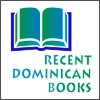
interviews with influential Dominicans appear occasionally on DomLIfe.org Brother Herman Johnson, OP  Herman Johnson, OP was elected prior of St. Anthony of Padua Priory in September of 2007. This is the first time in the 791 year history of the Dominican friars that a cooperator brother has been elected a local superior. He received his M.Th. and M.Div. from the Dominican School of Philosophy and Theology in Berkeley, CA, an M.A. in mental health counseling from Xavier University, and a Doctor of Education from Columbia University Teachers College in New York. Presently Herman is assistant professor of Spanish at Xavier University and is director of, and preacher for, Southern Dominican Global Missions. 1. Bro. Herman, what drew you to Dominican Life in the first place? Nothing but my encounter with St. Martin de Porres. At the age of ten, a pamphlet of his life appeared in my home. I was struck by his dark skin color as well as his gentleness towards both humans and animals. For the most part, he lived without status and prestige, yet was fully validated by God’s love. Like all great saints, love of God and people were one and the same thing. 2. What drew you to choose becoming a brother over becoming a priest? My temperament is more suited for the life of a religious brother
. Although Dominican brothers as well as priests share the same
call to preach, I am more than happy with the relational manner
in which I preach through a range of vehicles. The routine ritual
life of the priest did not attract me. My choice has been secured
in the joy that has accompanied this somewhat misunderstood vocation.
During formation studies there was a brief glance at the priesthood,
yet it was only a glance. In the past, a love of study could be
construed as certain call to priesthood. Yet I survived this restrictive
association to be a brother and grew in accord with my talents.
Of course I was greatly aided by the community. 3. Why has it taken almost 800 years for the Order to elect a
brother as prior? 4. By making this change, how do you assess the Order's overall I was at the Providence General Chapter. The concern was not so much about the role of brothers, but the "diocesanization" of the religious priest. The friars of St. Anthony of Padua Priory have contributed greatly to the evolving attitudinal change and current questions about priesthood within religious orders. They have re-claimed a deep sense of our fundamental identity as brothers, who are called to live a common religious life and for whom ordination to the priesthood for some is not a promotion but a new expression of fraternity. As such, brothers in leadership roles becomes normal. 5 How has being African American influenced your own integration into this leadership role for the province? Since the election caucus/discussion is confidential without my not being present, I have no idea why the friars of St. Anthony elected me as their Prior. Yet, I would imagined that my love of every aspect of Dominican life is evident along with a sensitivity and love of all the friars and sisters. The trauma of being raised in the particular racialized culture of New Orleans fostered a compassion for people. As a child, I observed the hatred for dark skinned people, by blacks as well as by whites. It was a culture of self hatred and blatant negativity against anything associated with dark skinned people and places. As such, I guess I was determined to spend my life affirming the dignity and beauty of all, including myself. As such this rearing gave me the sensitivity and compassion that is essential for effective leadership in a priory community with friars from diverse ethnic backgrounds. The daily administrative responsibilities are secondary to good interactive pe ople skills. 6. Do students at Xavier University expect certain things from
you as a brother? 7. What are you most concerned about for your students at Xavier University? It’s my hope that they receive more than a college degree upon graduation. In sync with the mission of the university, it’s hoped that they are ready and willing to contribute to a more just and humane society. More important that they discover who they really are as images of God as over solely career acheivement. 8. What books are on your night stand? 9 If you could have every Dominican in the US read a particular
book what would it be and why? I would love to meet St. Martin de Porres, to hear him articulate
what life was really like for him sixteenth century Peru. I’d
be particularly interested in his critique of the injustices of
the day and its effects on his life choices. He represents all
marginalized people who live and seek the fullness of life within
the Catholic faith. I would want to know his impressions of the
Order today and in particular the role of Brothers. |
Read the story about Bro. Herman's election |
subscribe to
DomLife.org and receive a free email update every two weeks. unsubscribe |


